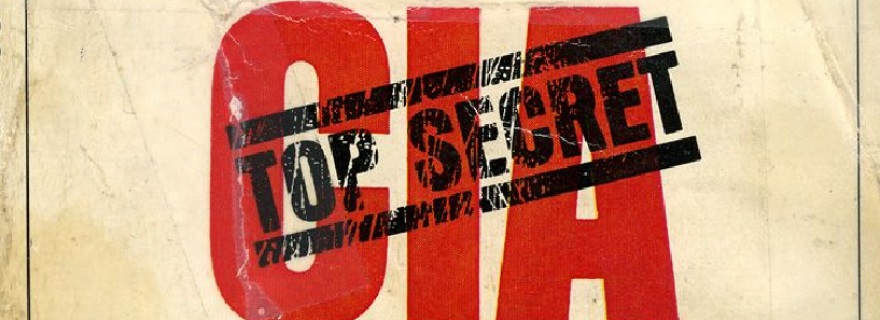The “Deep State”: A Problem that the CIA Helped to Create
Intelligence services need secrets. But excessive secrecy has consequences.
“There are two governments in the United States today. One is visible. The other is Invisible.” Today these words would not seem out of place in a Breitbart editorial, perhaps describing the “Deep State” machinations to unseat President Trump. But they are in fact the opening lines of journalists David Wise and Thomas Ross’ bestselling 1964 history of CIA covert action, The Invisible Government. Wise and Ross wrote the book in the aftermath of the CIA’s disastrous attempt to invade Cuba at the Bay of Pigs in April 1961, an event which precipitated the first serious wave of press criticism against the Agency. The assassination of President Kennedy followed two and a half years later. Amidst the avalanche of conspiracy theories that followed, some of which were sponsored by the KGB, the CIA’s reputation as a uniquely nefarious presence in American life was secured. Kennedy helped to fan the flames of suspicion. Publicly he accepted responsibility for the fiasco, but in his posture of contrition he could not help but cast aspersions. “Defeat is an orphan, but victory has a thousand fathers”, he remarked to the press, implying that others were to blame. In private, he threatened to “splinter the C.I.A. in a thousand pieces and scatter it to the winds”, a remark picked up on by biographers, and JFK assassination conspiracy theorists, ever since.
In the 1990s, the narrative of CIA as malign “Deep State” actor was given added impetus by the release of a Hollywood blockbuster, Oliver Stone’s film J.F.K. (1991), which alleged that the CIA, along with a number of other shady benefactors of the military-industrial complex, had killed Kennedy. The film’s thesis was dubious at best, but its impact was astonishing. It led directly to the passage of the JFK Assassination Records Collection Act (1992), which led to the declassification of almost all the remaining secret documents on the Kennedy killing. It also inspired the public clamour that led to the Moynihan Commission on Government Secrecy (1994-1997), which issued a damning final report on the excesses of Cold War secrecy. But things did not change. After 9/11 there was a dramatic upswing in original classifications. From 8 million in 2001 to 14 million in 2005. The cost of maintaining this system of secrecy has soared with it, from an estimated $6 billion in 2011, to $13 billion in 2012! Today the annual cost is estimated at around $17 billion. To put that into perspective, the entire budget of the US Environmental Protection Agency in 2016 was just $8 billion.
Excessive government secrecy undermines public trust in government. US public trust in government fell from 77% to 36% during the course of the Vietnam War, a conflict marked by revelations of US government deception, giving rise to the concept of the “credibility gap”. It took a further beating after Watergate, a story of secrecy, covert operations and cover-up, and then again in 1975 amidst a series of scandals that produced a season of inquiries into the activities of the CIA and FBI. It has not recovered since. As of December 2017, US public trust in government stands at 17%. Conspiracy culture’s shift from the periphery to the centre of American politics is one consequence of this. Another is the deep public distrust in America’s intelligence services, a distrust that Trump has utilised masterfully for political gain. The Deep State has been a useful concept in Trump’s political arsenal, helping him to cast suspicion on inconvenient intelligence assessments, most obviously the investigations into Russian influence upon his 2016 election campaign.
Intelligence services need secrets. They need them to protect their sources and methods, and in cases of war to maintain the element of surprise. But excessive secrecy has consequences. In the rush to interpret the recent avalanche of “fake news” and conspiracy theories that have helped to undermine the democratic liberal order, numerous explanatory frameworks have been put forward, from the role of social media to the presence of malign actors such as Russian and North Korean hackers. But the Internet did not create the problem of public distrust in government and the corollary of widespread belief in conspiracy theories; it has simply exacerbated it. The origin of the idea that the US intelligence services constitute a “Deep State”, or an invisible government, secretly pulling the strings of US foreign policy, coincided with a succession of revelations in the 1960s and 1970s that involved secrecy and government deception. In the last decade, the CIA have redoubled their public relations work to convince a sceptical American public of their vital mission, but scandals from the CIA’s use of torture to their secret rendition program have undermined those efforts. They have worked with filmmakers, television producers, academics and the press to help dispel conspiracy theories and present their work in a positive light. All of this is an understandable response to a widely held vision of intelligence agencies that unfairly cast them as malign “Deep State” actors, a narrative that ignores the culpability of policymakers in authorising and supporting controversial clandestine programs. But to truly combat the public scepticism towards intelligence that has offered a breeding ground for conspiracy theorists, intelligence communities need to address the cause of that scepticism, namely excessive government secrecy, not the symptom that is conspiracy theories.


